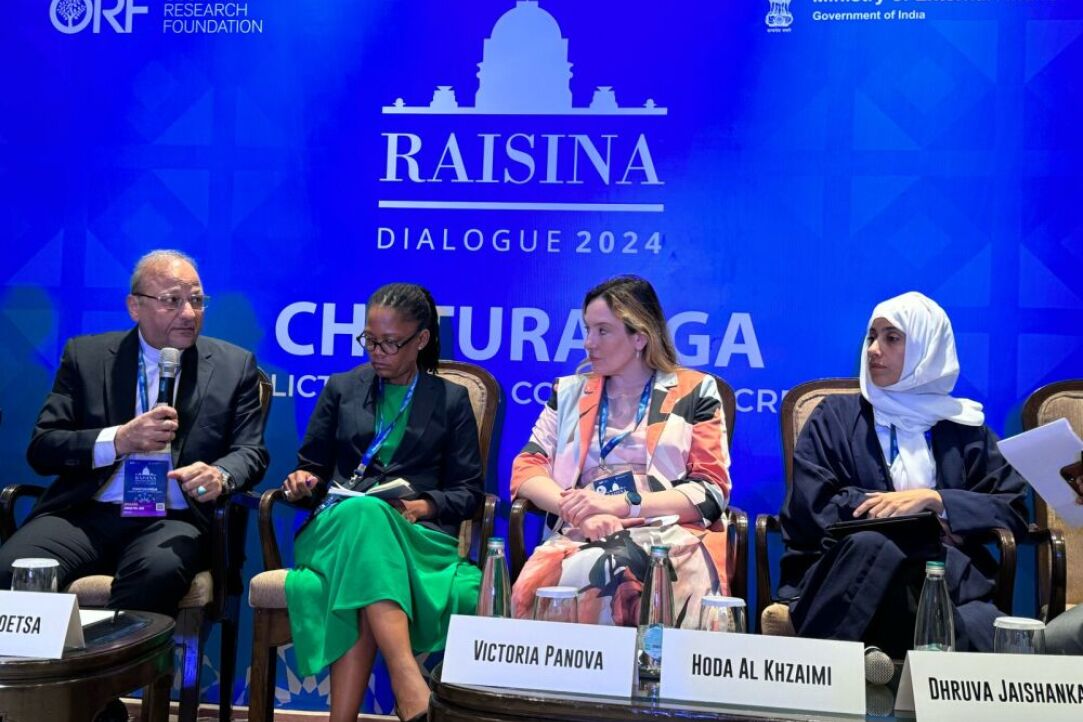
HSE Strengthens Cooperation with India and Creates Opportunities for Dialogue between Experts
Following the visit of the HSE University delegation to New Delhi, cooperation agreements with leading Indian universities were finalised. Similarly, a number of expert events, consultations and negotiations on the development of comprehensive strategic cooperation with Bharat took place. The HSE University delegation also participated in the Raisina Dialogue, one of the largest international expert forums.
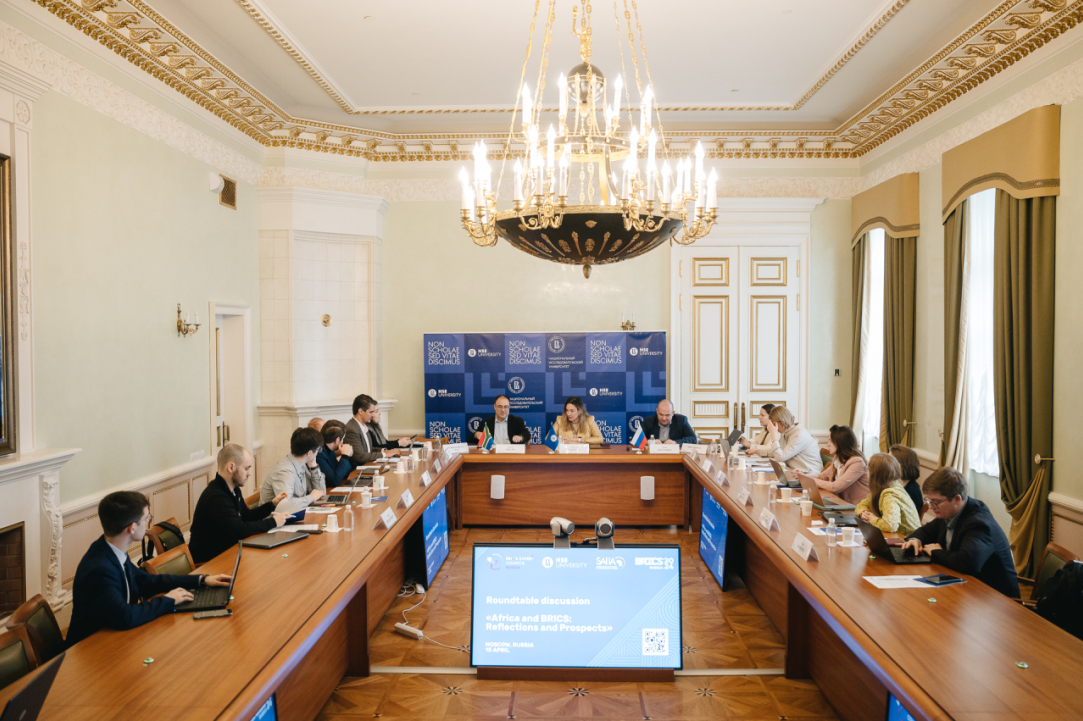
HSE Hosts Round Table ‘Africa and BRICS: Reflections and Prospects’
On April 15, 2024 HSE University hosted a roundtable discussion ‘Africa and BRICS: Reflections and Prospects.’ The event featured leading experts from the South African Institute of International Affairs (SAIIA) Steven Gruzd and Gustavo de Carvalho and was moderated by HSE Vice Rector and Head of the BRICS Expert Council–Russia Victoria Panova.
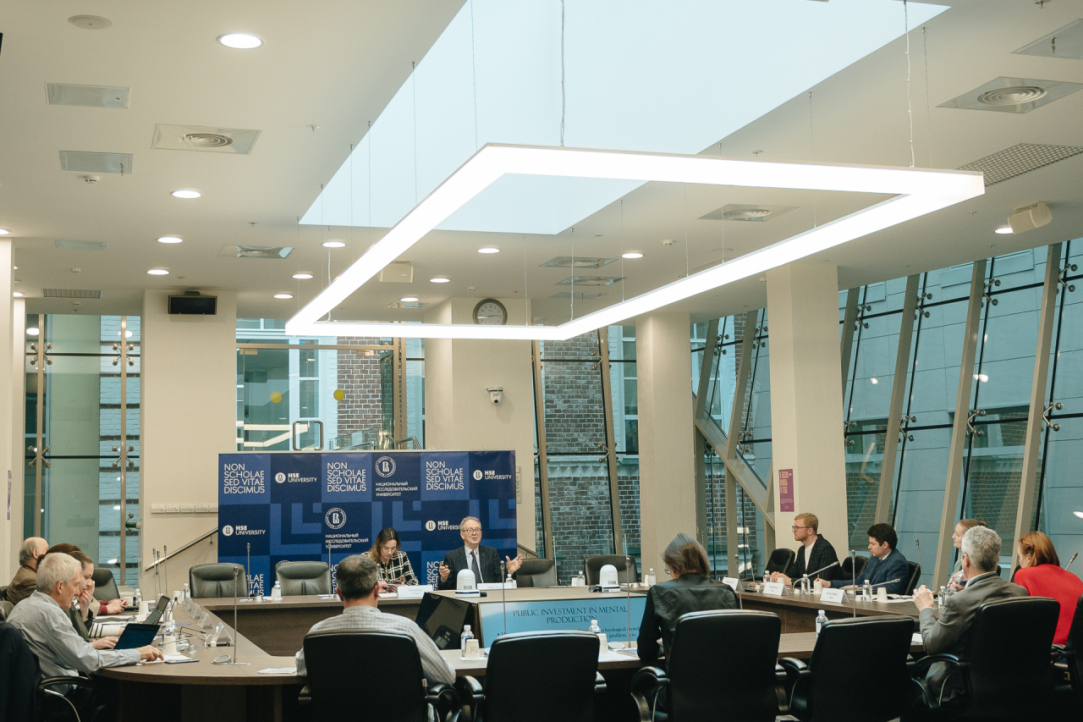
Intellectual Property Issues in the Framework of BRICS Discussed at HSE University
On April 8, a roundtable discussion entitled ‘Intellectual Property on the Rise: How to Maximize Its Positive Impact and Avoid Hazards’ took place at HSE University in Moscow. The participants included Victoria Panova, HSE Vice Rector and Head of the BRICS Expert Council–Russia, andAlan Freeman, Co-Director of Geopolitical Economy Research Group at the University of Manitoba; Secretary of Geopolitical Economy Research and Education Trust; Co-Editor of Geopolitical Economy Book series, Manchester University Press.

‘The Goal of the Contest Is to Select Bold Ideas Aimed at Fostering a More Equitable Global Development’
HSE Vice Rector, Head of the BRICS Expert Council–Russia and Co-chair of the BRICS Civil Forum Victoria Panova, and Dean of the HSE Faculty of Humanities and Chair of the Contest Jury Felix Azhimov, announced the primary objectives of the contest, its format and potential participants during a press conference at TASS. Nationals from the BRICS countries, aged 18 to 45, are eligible to apply for participation in the contest. The jury will select ten winners, three of whom will be given the opportunity to attend the BRICS Civil Forum in Moscow in person.
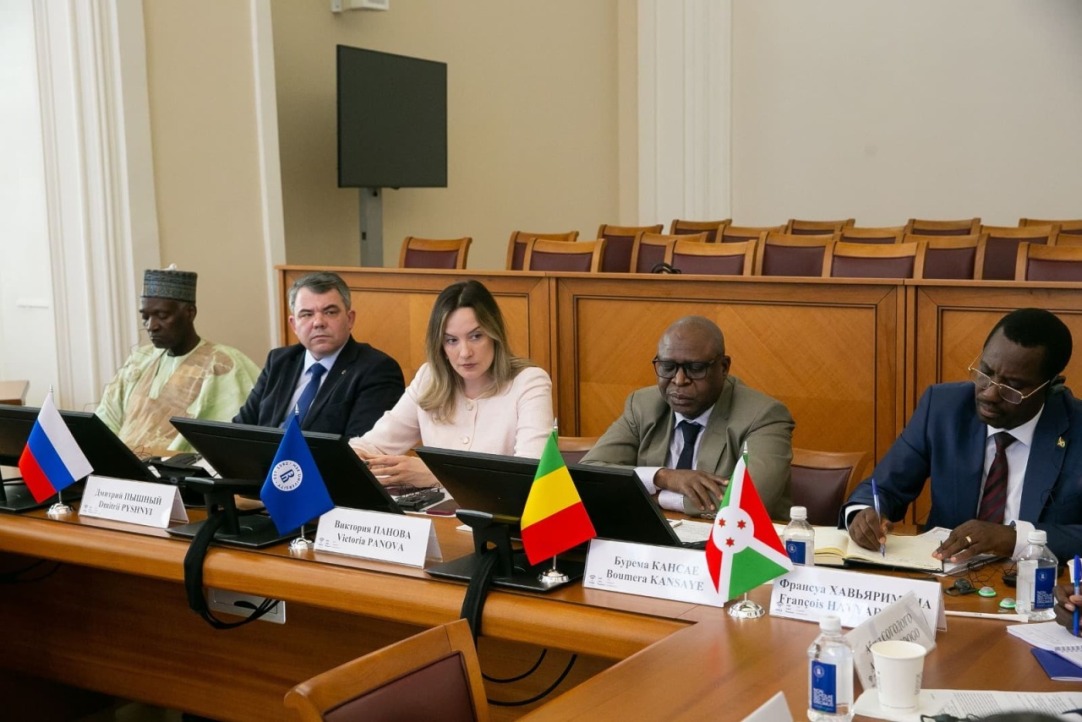
‘We Have Promising Opportunities with Africa, and It Is Important to Foster Cooperation’
A Strategic Session focusing on cooperation between Russia and African countries in the sphere of higher education was held at HSE University's building on Pokrovsky Bulvar. The event was attended by representatives of HSE University, rectors of other Russian universities, and ambassadors and ministers of higher education from several African states.

‘Fine-Tuning the Molecule’: Prospects for Biosimilar Market in BRICS Space
The market for biological products and their analogues is one of the most promising in the pharmaceutical industry. BRICS countries currently have great opportunities to develop this segment. The International BRICS Competition Law and Policy Centre at HSE University, together with the Institute of Chemical Technology, Mumbai, held a meeting of the BRICS Working Group for the Research of Competition Issues in Pharmaceutical Markets.
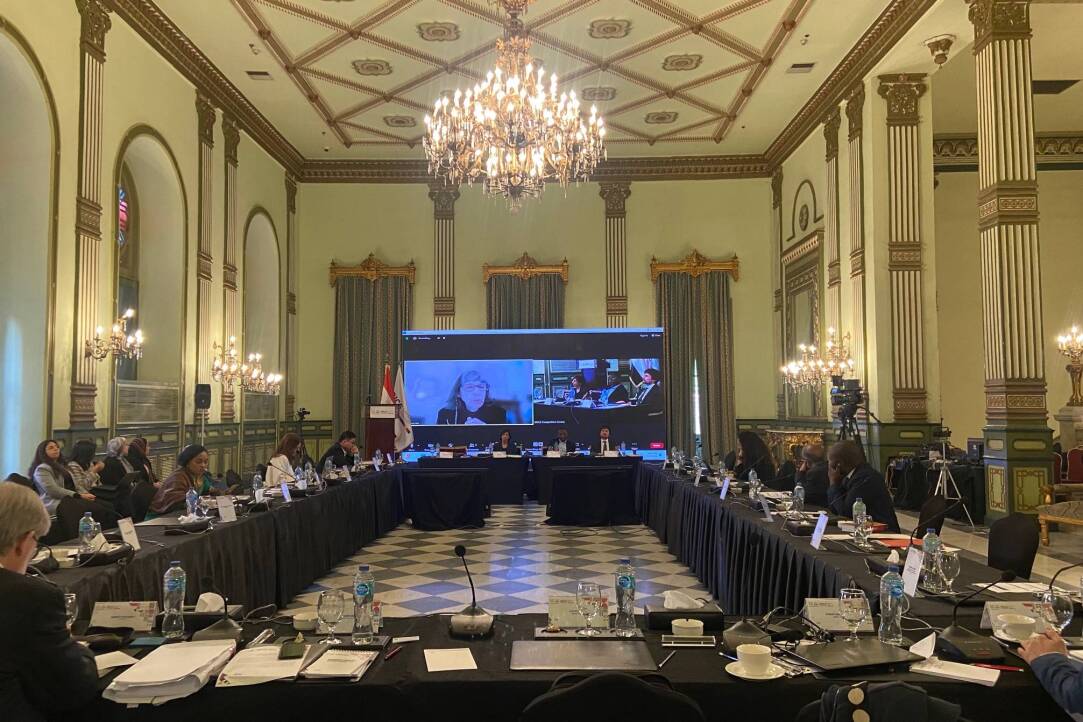
BRICS Antimonopoly Authorities to Join Forces in Regulating Grain Markets
More than 70% to 80% of the calories we consume are derived from grain products. However, the global grain market today is dominated by a small group of traders. The HSE International BRICS Competition Law and Policy Centre has proposed establishing an intergovernmental BRICS platform on fair competition to serve as a new mechanism for coordinating the efforts of antimonopoly authorities in regulating global markets. This topic was discussed at an international seminar in Cairo.
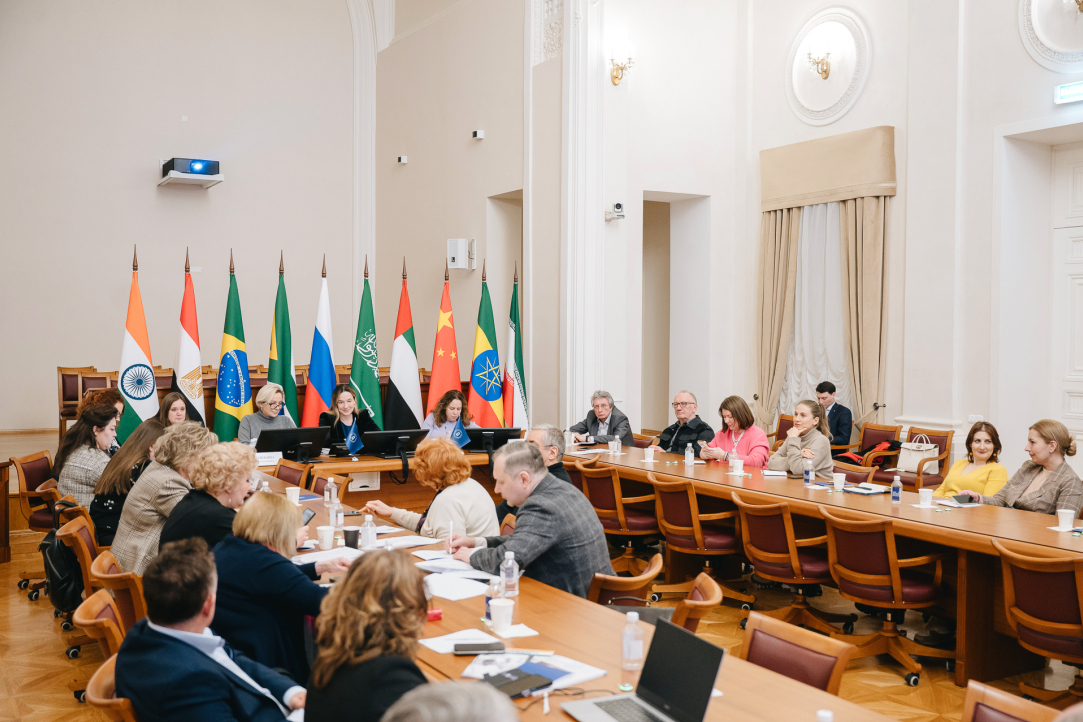
HSE University Hosts the First Meeting of Russian NGO Representatives as Part of BRICS Civil Track
More than 50 representatives of non-profit organisations took part in the meeting, where they discussed the event plan for 2024 and thematic areas of activity of the working groups of the BRICS Civil Forum, scheduled to be held in Moscow in July 2024. The BRICS civil track’s operations are coordinated by the BRICS Expert Council–Russia.
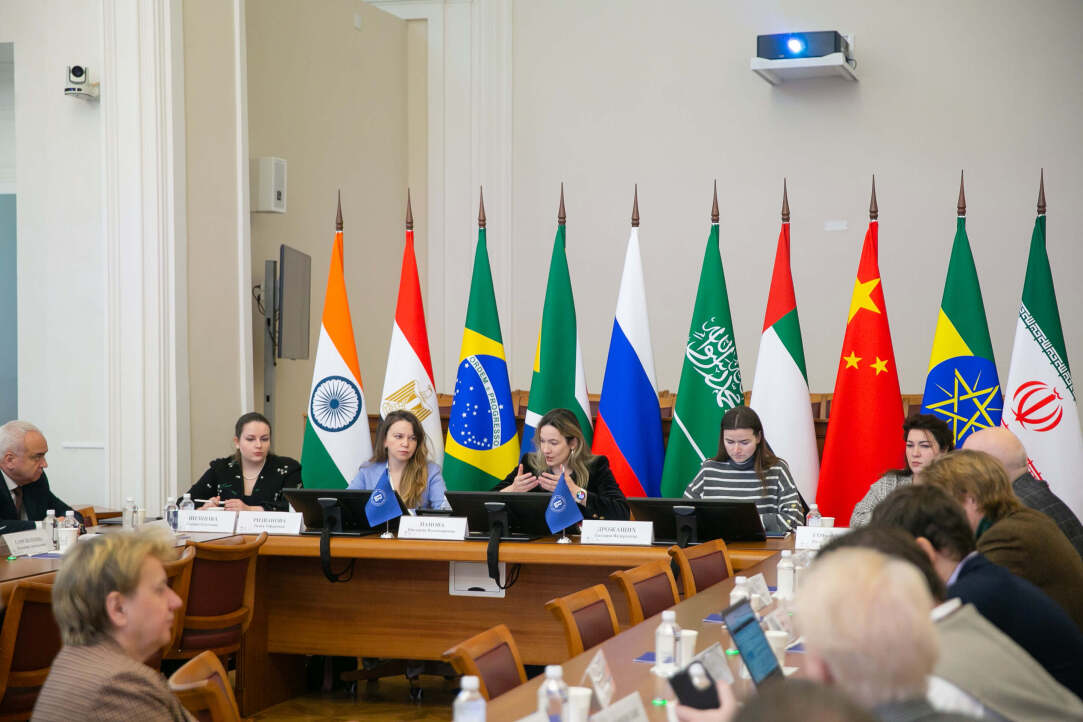
BRICS Expert Council–Russia Launched at HSE University
The official presentation of the BRICS Expert Council – Russia has taken place at HSE University. The Council will be responsible for the information, analytical and expert support of the Russian BRICS Chairship 2024.
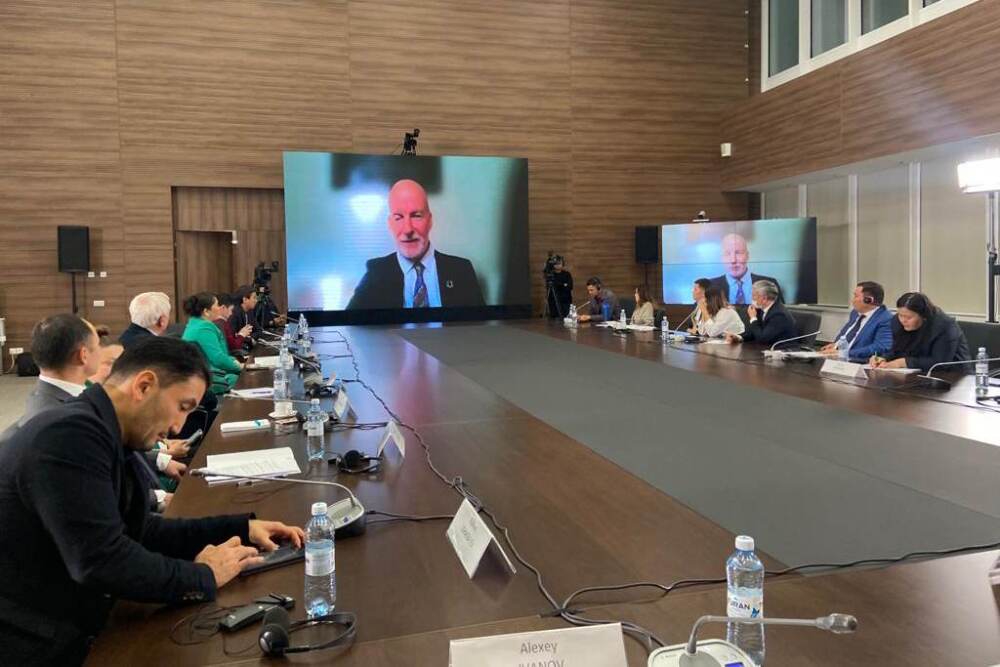
Experts from HSE University Explore Prospects for Carbon Farming in Kazakhstan
HSE University’s International BRICS Competition Law and Policy Centre and the university’s Centre for Technology Transfer, together with the International Institute for Applied Systems Analysis (IIASA, Vienna), have released a draft version of the research report ‘The Carbon Farming Industry in Kazakhstan: Unlocking Opportunities.’ Experts from the UN Convention to Combat Desertification and the Kazakhstan-based TALAP Centre for Applied Research also took part in the project.

